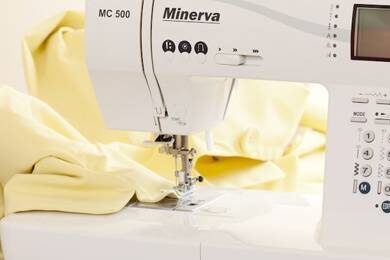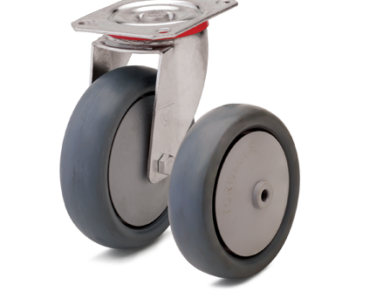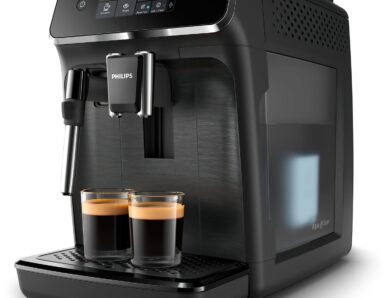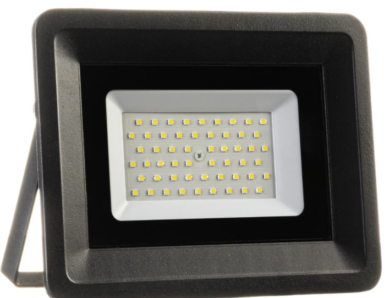Repair the circulating heating pump with your own hands: video, audit, dismantling
Circulation pumps of various types are often used today in country houses and cottages, that allows to make work of systems of autonomous heating more effective and at the same time to save on the spent energy resources. Meanwhile, when such a hydraulic machine fails, the entire heating system ceases to function, which puts its user in front of a choice: use the services of qualified specialists or repair the circulating heating pump with your own hands.
Disassembly of the circulation pump
Causes of failure of circulating pumps, species of which differ from each other by certain design features, related to non-compliance with the rules of operation of such equipment, and with the quality of the coolant, differences in the power supply network, as well as a number of other factors. Before deciding to self-repair a circulating pump, should be well versed in the design and principle of operation of such a device, which will establish the exact cause of its failure and eliminate it.
Device, types and principle of operation of circulating pumps
Not knowing the device of the circulating pump, you will not be able not only to repair such a hydraulic machine, if necessary, but also to engage in its regular maintenance. The design of circulating pumps is:
- frame, made of stainless steel or non-ferrous alloys;
- electric motor, whose shaft is connected to the rotor;
- the rotor itself, on which the wheel with blades - impellers is established (her shovel, constantly in contact with the pumped medium, can be made of metal or polymeric materials).
Circulation pump design
The circulating pump works regardless of its design according to this principle.
- After the supply of electric current, the drive motor shaft begins to rotate the rotor, on which the impeller is installed.
- Entering the inner part of the pump through the suction pipe coolant is rejected by the impeller and centrifugal force to the walls of the working chamber.
- Liquid, on which the centrifugal force acts, pushed into the discharge pipe.
As mentioned above, depending on design features the circulating pump for heating can concern various types. So, allocate devices with a rotor:
- "Wet";
- Dry.
Wet circulating pumps are most often used in private homes
In circulating pumps of the first type, which are used mainly to equip domestic heating systems, the rotor is constantly in a liquid medium. This not only helps to lubricate the moving parts, but also their effective cooling. The main advantages of this type of equipment include:
- low noise level at work, since water, in which are all the moving parts of such a device, perfectly absorbs vibrations;
- ease of installation (such pumps simply crash into the pipeline), maintenance and repair.
Meanwhile, pumps with a "wet" rotor, if we talk about their shortcomings, are not too high efficiency, can be installed only in a horizontal position and are very critical of the lack of liquid in the heating system.
Pumps with a "dry" rotor are installed in individual boilers and used in systems, heating large areas
The drive motor of pumps with a "dry" rotor is made in a separate unit. Rotation from the motor shaft is transmitted to the impeller by a special clutch. Unlike devices with a "wet" rotor, pumps of this type are characterized by higher efficiency (to 80%), but also a more complex design, which somewhat complicates the procedures for their maintenance and repair. Circulation pumps with a "dry" rotor cut into the pipeline and attach their housing to the wall, for which a special console is used.
Rules of operation and maintenance
In order not to face situations, at which the circulating pump, installed in the heating system, will require repair, it is necessary to strictly follow the rules of operation of such equipment, which are as follows.
- If there is no water in the pipeline, the circulation pump must not be started.
- The magnitude of the formed water pressure must be within the characteristics, specified in the technical data sheet of the circulation pump. If the device will issue a reduced or, vice versa, high water pressure, this can lead to its rapid wear and tear, in accordance, failure.
- During the period, in which the heating system is not used, the pump must be switched on for circulation at least once a month for a quarter of an hour, which will prevent oxidation and blocking of its moving parts.
- It is very important to monitor this, that the water temperature in the heating system was not more than 65 °. In the water, heated to a higher temperature, begins to actively precipitate, which, interacting with the moving parts of the hydraulic machine, contributes to their active wear and, in accordance, failure of the whole device.
The circulating pump must be inspected and checked for correct operation on a monthly basis. Such measures allow to detect malfunctions of the equipment at the initial stage and promptly take appropriate measures.
Periodic inspection of the circulation pump will significantly reduce the probability of its failure during the heating season
Checking the circulation pump for correct operation includes the following steps, as:
- switching on the hydraulic machine to the operating mode and checking the level of noise and vibration generated by it;
- pressure check (pressure level) coolant, created in the discharge pipe (as mentioned above, the fluid pressure must be within the values, given in the technical passport);
- control of degree of heating of the engine, which should not be too high;
- check the presence of oil on the threaded connecting elements of the pump and its application, if it is absent;
- checking the presence and correctness of the grounding of the hydraulic machine body;
- check for leaks on the pump housing, and in places, where it connects to the pipeline (if leaks are present in such places, it is necessary to tighten the threaded connections and check the integrity of the installed gaskets);
- inspection of the terminal box and check the fixation of the wire in it (in addition, need to check, does not get moisture in the terminal box, which is unacceptable).
The main reason for the rapid wear of friction bearings in pumps is considered to be increased contamination of the coolant
The most common faults and their elimination
Here are some of the most common problems with circulating pumps, which are quite realistic to eliminate with your own hands. Such faults can be detected by their characteristic features, even without disassembling the pump and without using complex diagnostic equipment.
The pump hums when switched on, but the impeller does not rotate
The cause of the situation, when the pump is noisy, but the impeller is stationary, often there is oxidation of the drive motor shaft. This can happen because of that, that hydraulic machines have not been used for a long time. To repair the heating pump with your own hands in the event of such a fault, the following steps must be performed:
- turn off the power;
- drain all water from the pump and the adjacent pipeline;
- unscrewing the appropriate screws, to dismantle the drive motor together with a rotor;
- resting on the working notch of the rotor with your hand or a screwdriver, force to turn it, shifting from a standstill.
Circulating pump in disassembled form
The pump will make noise, but not work in that case, if a foreign object gets into its inner part, which blocks the rotation of the impeller. To repair the circulation pump in such a situation, perform the following actions:
- turn off the power;
- drain the water from the pump and the adjacent pipeline;
- disassemble the pump according to the above scheme;
- remove a foreign object;
- install a strainer on the inlet pipe.
This is what the circulation pump housing looks like from the inside
The included pump does not hum and does not work
If the circulation pump is switched on, there is no noise, but also does not work, possible power problems. Disassembly of the circulation pump may not be required to identify the cause and remedy such a fault: using a tester, check the level and presence of voltage at the terminals of the device. In many cases, it is sufficient to properly connect the pump to the mains to rectify this fault.
If there is a fuse in the design of the circulation pump, then it could burn out when the voltage drop in the mains, which may also be the reason, why the heating pump does not work and does not make noise at inclusion. To restore the pump, simply replace the blown fuse.
Armed with a tester and a schematic diagram, you can find more serious damage to the electrical part of the pump, example, burnt windings
After a short operation, the pump switches itself off
In that case, if a layer of lime deposits has formed on the inner surface of the stator, the running pump will stop periodically. To solve such a problem, it is necessary to disassemble the pump and clean all its internal parts from limescale.
When switched on, the pump starts running, but at the same time makes a loud noise
The reason for the high noise of the equipment when pumping liquids may be the presence of a large amount of air in the pipeline. To eliminate this problem, it is enough to blow air out of the pipes. In order not to face this in the future, you can install a special site at the top of the heating circuit, which will release air from the pipeline automatically.
Release of air from the pump
Strong vibration of the circulating pump
If the body of the hydraulic machine vibrates strongly when pumping the coolant, that may speak for itself, that bearing, which provides rotation of the impeller, very worn out. Repair of the circulating pump for heating in this case consists in replacement of the worn-out bearing.
End graphite bearing of the Grundfos pump
The circulating pump delivers insufficient fluid pressure
Among the reasons for non-compliance of fluid pressure with the normative value at the output of the centrifugal pump are the following.
- The impeller rotates in the wrong direction.
- Phase wires are incorrectly connected in the terminal box (with three-phase connection).
- The viscosity of the coolant used is too high.
- The filter is clogged, installed on the suction line.
This problem is eliminated in accordance with the cause, which caused her appearance.
The pump switches off some time after switching on
This fault can be caused by incorrect connection of the phase wires in the terminal box, bad or oxidized contacts in the safety site of the device.
To repair the electronic component of the pump will require basic knowledge of electrical engineering
The pump is heating up
This is another nuisance, which in the operation of such equipment is quite common. Why the circulating pump is heated? The reasons may be different, but such a situation always proves it, that the equipment works with high load.
So, with many situations, in which the circulation pump does not work or does not work properly, you can handle yourself, without resorting to the services of qualified specialists and without buying expensive spare parts and components for repair.
How to prepare a circulating pump for the heating season
Before the heating season, so as not to face the subsequent failure of the circulating pump and its repair, it is necessary to properly prepare the device for a long period of intensive work.
- It is necessary to check up correctness of insertion of the pump in the pipeline, focusing on the arrow on the body and the impeller rotation indicator. When installing a new pipeline for the circulation installation of the hydraulic machine, it is better to choose the area directly in front of the boiler, where the risk of air congestion is minimized.
- The gaskets and nozzles of the pump must be lubricated to prevent them from drying out.
- It is necessary to check the condition of the strainer on the suction pipe and, if it is clogged, clean it thoroughly.
- You also need to evaluate the correctness of the pump connection to the mains, what the tester is used for.
- It is necessary to check tightness and reliability of connecting knots of the hydraulic machine.
- You must run a test run, the results of which will show, whether your equipment is ready for the heating season.
Recommendations for disassembly of the circulation pump
Before disassembling the circulation pump, if necessary (example, during repairs), it must be disconnected from the power supply and removed from the pipeline, unscrewing all fasteners.
After the pump is dismantled the heating system, you can start disassembling it:
- The cover is removed, which is fixed on the pump housing by means of special bolts.
- After removing the cover from the inside of the pump, the impeller is removed.
After that, access to all internal parts of the pump will be provided, they can be viewed, clean or replace with new ones, if necessary.
The video demonstrates a very good sequence of disassembly of circulating pumps of different models for repair, which are easy to find online.




